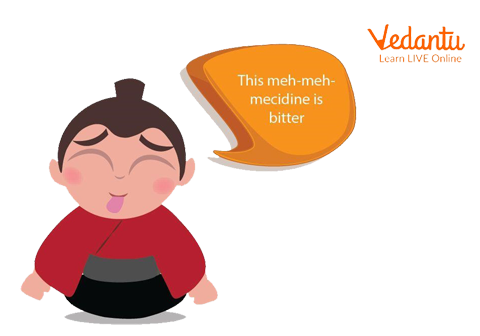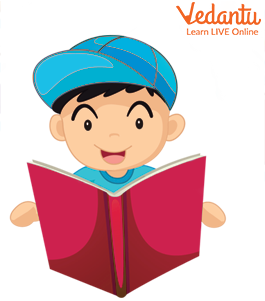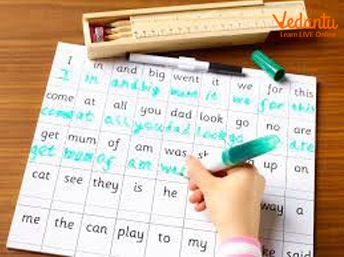




Essential Word List to Expand Kids’ Vocabulary and Confidence
Have you ever wondered what makes any sentence be written or spoken? It's the Vocabulary words that are reconstructed together by using grammatical rules and tools to result in meaningful sentences.
Vocabulary is a set of words that are used in a specific language. It includes many words you understand when you read, write or listen to someone speak. It can refer to a physical thing, such as a book that defines or explains a set of terms. It can also refer to a list or collection of phrases or codes that can be utilized.
Definition of Vocabulary - What is Vocabulary?
The term "vocabulary" can refer to a collection of terms that an individual or a group of people is familiar with. It can also refer to a collection of specialist terms in a subject of study or practice. Some of the vocabulary words that are used in day-to-day lives in the English language are come, here, there, drink, go, eat, no, right, sit, cool, fan, school, tree, book, and good.
Importance of Vocabulary for Kids
Vocabulary is all about the words you know in a particular language. It is very important to learn and understand the concept and importance of vocabulary.
Vocabulary is the raw materials with which we can communicate our thoughts, and ideas, share information and strengthen personal bonds.
Vocabulary words help in effective communication.
Good vocabulary makes your personality impressive.
You can express yourself better when you know the right words to use.
Types of Vocabulary
Vocabulary can be divided into 4 categories. The following is an explanation of each type of vocabulary.
Listening vocabulary
Speaking vocabulary
Reading vocabulary
Writing vocabulary.
Let's explain all four types of vocabulary in detail.
Listening Vocabulary
Listening vocabulary is made up of words that we understand by hearing them. Visual listening vocabulary can be introduced to deaf persons to help them learn.
For ex: If you are talking to your friend, then the words they say to you during the conversation are a part of the Listening Vocabulary

Listening Vocabulary
Speaking Vocabulary
The words we say make up our speaking vocabulary. These are used to communicate and give instructions. The words we use when speaking are considered to be our speaking vocabulary.
For example: If you are talking to your friend, then the words you say to them during the conversation are a part of the Speaking Vocabulary.
To enhance your Vocabulary, we can use synonyms, Antonyms, one-word substitutions, etc.

Speaking Vocabulary
Reading Vocabulary
Reading is a key component of vocabulary. Your vocabulary idevelops as a result of reading. Reading vocabulary refers to the terms we pick up while reading a text. For example, If you are reading a book, the sentences you read from the book are a part of the Reading Vocabulary.
There are similar-sounding words under the category of Reading Vocabulary like accept or except, check and cheque, dear and deer, desert and dessert, due and dew, etc.

Reading Vocabulary
Writing Vocabulary
Writing vocabulary refers to the words we recover while expressing ourselves through writing. It is found easy to express ourselves vocally, through facial expressions, or intonation. The vocabulary we use when writing is made up of words.
Writing diary entries every day to pen down our daily thoughts is a part of Writing Vocabulary. Writing letters and messages to express ourselves also falls under the category of Writing Vocabulary.

Writing Vocabulary
Ways to Improve Your Vocabulary
Here are a few simple ways you can utilize them to improve your vocabulary.
Develop a reading habit.
Play word games like puzzles and crosswords.
Learn new vocabulary by using it in conversation.
English dictionary words can also be helpful to improve vocabulary. Try to search the dictionary for new words.
Try to use new words while writing or speaking.
Practice Questions
Q1. Write 5 Vocabulary words each for the synonyms and antonyms of beautiful.
Synonyms: Comely, fair, handsome, lovely, and pretty.
Antonyms: Awkward, Bad, Coarse, Crude, and Drab
Q2: Write 5 vocabulary words for the antonym of happy.
Ans: Sad, unhappy, pitiful, miserable, and regretful.
Conclusion
In this article, we have learned about vocabulary, the importance of vocabulary, and the types of vocabulary. We have also understood how important it is to know the words but due to a lack of education, poor skills, or learning difficulties, people struggle with vocabulary. Your communication abilities will develop as a result of learning and exploring new words and then utilising them in various situations. Continue to learn antonyms, synonyms, connotations, idioms, and phrases as well as read a variety of books to expand or improve your vocabulary.
FAQs on Vocabulary Words for Kids: Learn, Speak, and Succeed
1. Why is learning Vocabulary skills a necessity?
Vocabulary is a significant focus of literacy and refers to the knowledge of words, including their structure (morphology), use (grammar), meanings (semantics), and links to different words (word/semantic connections).
Children need to have a rich vocabulary that continuously develops through language and education, grasp and build progressively complex texts, and takes part in oral language for different social purposes.
2. How can vocabulary improve your communication?
While you're writing something or talking, words are the main tool that you have access to help you communicate a personality, an emotion, or an idea. Hence, the more words you know and can utilise, the more probable it is that you will be able to find the ideal way to get your thoughts together into a message that will take care of your communication. Having a large vocabulary permits you to say the same thing in a wide range of ways. This means that you will be able to rewrite thoughts from resources that you find without plagiarising the source. You'll also have the option to customise your message to specific audiences.















